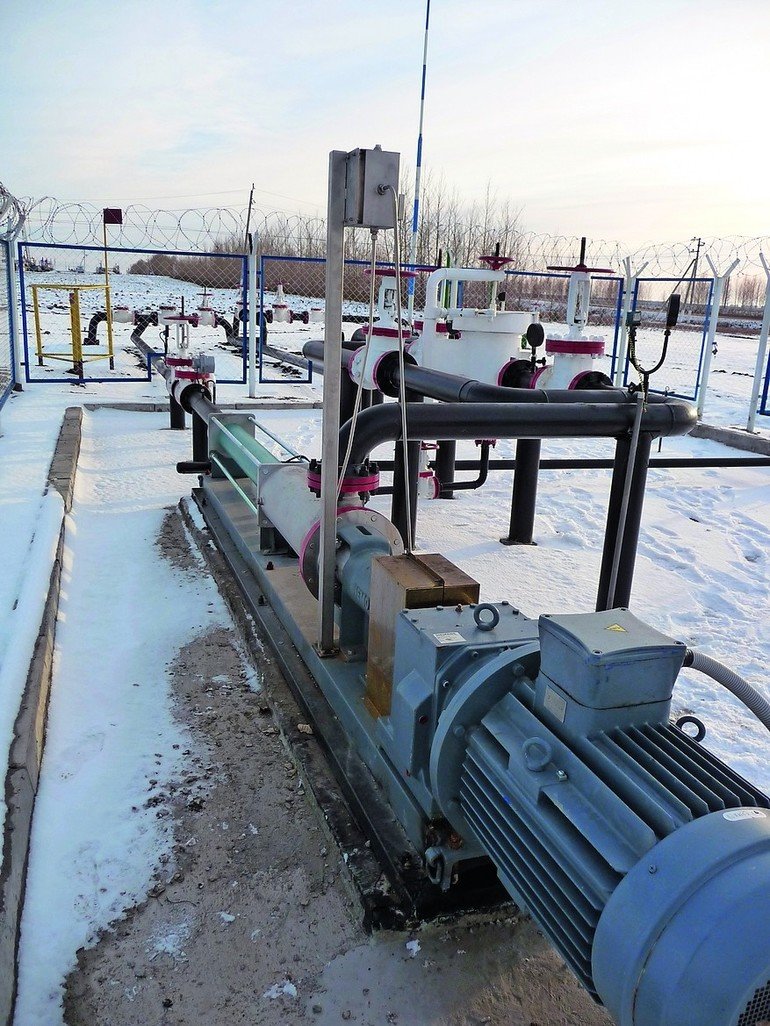Crude oil with a high sand content is one of the most difficult media to convey: on the one hand, its consistency is not clearly predictable because of the constantly changing composition, and on the other hand, the sand particles are highly abrasive. The associated wear means that traditional pumps have to be repaired or even replaced frequently. This was not an option for the critical main pumps of a system operating 24 h a day at an oilfield in the Tatarstan region of Russia, where the temperature sometimes drops to -40 ºC. The progressing cavity pump experts at Netzsch Pumpen & Systeme therefore recommended the use of Nemo progressing cavity pumps which are specially adapted for these adverse conditions and guarantee absolute reliability for at least 10,000 h, equivalent to over one year in continuous operation. A total of eight pumps were installed. A decrease in the delivery rate can be offset by an increase in the speed of the pump unit. This allows timely planning of servicing and helps avoid downtime.
Low-pulsation conveyance
Four Nemo type NM125SY progressing cavity pumps were chosen for this specific application in Tatarstan, each with a differential pressure of 18 bar, a pumping capacity of 120 to 220 m3/h and 250 kW drive power. They are used together with four type NM148SY pumps with a differential pressure of 30 bar, a pumping capacity of 70 to 155 m3/h and identical drive power. The pumps are installed at an oilfield where crude oil containing up to 3 % sand is conveyed. The pumping system was designed in such a way that the mixture of oil and sand is transferred to a central treatment station, leading to an effective reduction in the operating costs. Two 70 km long pipelines are fed from the eight Nemo pumps. As the sand content is so high, the mixture must be pumped to a separator system for further processing, where the solids and some of the water are separated. This is where one of the main advantages of the Nemo pumps comes into play: they considerably facilitate the separation process through their smooth, low-pulsation conveying of the product because they do not mix the phases during the conveying process and therefore assist the separation.
The pumps in Tatarstan also have to meet other challenges, namely the viscosity of the crude oil as well as its fluctuating pressure between summer and winter due to the high outdoor temperature differences, which is why the Nemo pumps used there require an additional control range.
Initially, the plan was to install Notos multi-screw pumps from Netzsch to replace the existing models from another manufacturer. However, after a detailed examination of the application, the customer was advised to use Nemo progressing cavity pumps. Problems would have to be expected with multi-screw pumps, even with special coatings, due to the high sand content. Nemo progressing cavity pumps are distinguished by their easy-to-control, low-shear pumping system combined with solid matter compatibility. A special low-temperature version of these progressing cavity pumps was chosen for the project in Tartastan, including a drive with a gearbox, couplings and bearings. The pumps operate continuously without maintenance and to the complete satisfaction of the customer.
Online search: cppPC117netzsch







